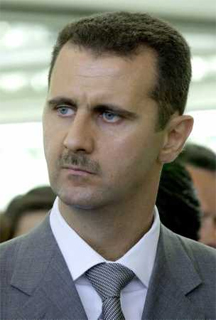BEIRUT, (Reuters) – Syria’s victory in dodging a U.N. resolution it deemed a license for regime change may only escalate its internal conflict into a full-fledged civil war that many analysts believe President Bashar al-Assad cannot ultimately win.

With the collapse of the sole diplomatic effort recognised by Assad’s foes – both armed and in a split civilian opposition, the stage is set for deeper diplomatic isolation of Syria and perhaps a new flows of arms and money to Syria’s insurgents.
“The worst effect of the veto is that it inflames, the civil war, intensifies it. We’re no longer talking about a hypothetical civil war. We’re now in the middle of a civil war. It’s started,” said Nabil Boumonsef, a columnist with Lebanon’s an-Nahar daily.
Russia and China vetoed a U.N. Security Council resolution on Saturday that sought backing for an Arab League proposal to end 11 months of bloodshed in Syria by urging Assad to pull troops from cities and allow a political transition to start.
The defeat of the measure a day after Assad’s opponents reported that his forces had killed over 200 people with artillery fire on the city of Homs prompted Western vows to ramp up pressure on Assad until he quits power.
By abetting violence, the veto may bolster Damascus’s contention that it is fighting an Islamist insurgency funded and directed by foes in Gulf Arab states, but offers no alternate political path out of the greatest crisis Syria has faced in the 49 years of the Assad family’s dynastic rule, analyst say.
“This (veto) is obviously an endorsement of the regime’s approach to the crisis which, over the last 11 months, has brought the country to the brink,” said Peter Harling of the International Crisis Group.
“We can expect the regime to push ahead along the same lines, which will raise the prospect of a civil war.”
RUSSIAN MEDIATION, ABSENT OPPOSITION
Russia, which sells Syria arms and maintains a military base on its coast, maintained that approving the resolution would have fanned the conflict through its failure to blame opposition groups equally for the bloodshed, which the United Nations says it can no longer track after 5,000 deaths.
Moscow will offer its own mediation – in the person of Foreign Minister Sergei Lavrov and its intelligence chief who are to meet Assad tomorrow, fulfilling a pledge last week to seek a negotiated end the bloodshed.
But that offer has already been rejected by the Syrian National Council (SNC) – the exiled dissident umbrella group which claims to speak for Syria’s political opposition and has only a tenuous link to the rebel force of army defectors.
The SNC and decentralised cells of fighters in Syria alike have demanded Assad surrender power as a precondition for any negotiations, a prospect analysts believe Russia itself would not raise with Assad.
“Russia understands what the Syrian regime is going through; it has an inherent inability to adjust quickly on the ground,” said Ayham Kamel, analyst with Eurasia Group risk consultancy.
“They encourage the Syrian regime to reform, but not remove all the structures. It’s all about restructuring, not removal.”
That approach rules out the key demand of the opposition, but it now looks to be making headway in a campaign to brand Assad a pariah, after Tunisia moved to expel his ambassador and withdraw recognition of Damascus.








